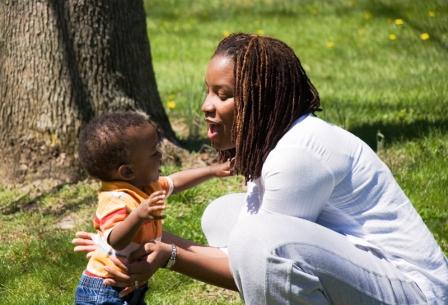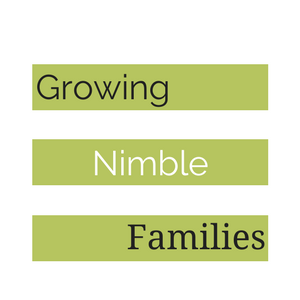Children are reaching the age of 3 without being able to say a word, according to a survey that also found boys are almost twice as likely to struggle to learn to speak as girls.
The average age for a baby to speak their first word is 10 to 11 months. However, a significant minority (4 per cent) of parents reported that their child said nothing until they were 3.
Toddlers between the ages of 2 and 3 should be able to use up to 300 words, including adjectives, and be able to link words together, according to I CAN, the children’s communication charity. Late speech development can lead to problems, such as low achievement at school or mental health problems.
Source: Times
So what did your child do?
If your child talks late there are all sorts of reasons for it. It is not simply one reason. It can even vary between families and within families.
Common reasons I have heard and overheard,
” My brother/ I was a late talker so he/she will be. I’m not worried”
“They watch a lot of TV. It’s not rubbish TV but educational programs.”
“They’ll catch up.”
“It’s no big deal. We all develop at a different pace. They are just not into talking right now. But they can make amazing things.”
“I had no idea if she was behind or ahead. She understood when we asked her to fetch something or to stop doing it. “
“My neighbours child was speaking in complete sentences and I knew that was really advanced but didn’t realise what mine should be doing?”
“We played and talked with him and he’s just not saying many words”.
That last comment was ours and has been our mantra for the last few years.
You see we’ve had speech and language problems with the BG and the MO.
What the most important thing I have learnt during this whole process is to focus on my child. Not what Trevor down the road can do or Cousin Tilly. What is my child doing? What is he ( or she) supposed to be doing? ON AVERAGE. Where are they on that scale? Do I need help and support now so I know where they are?

Photo credit: www.babies-and-sign-language.com
For many children they will just get it and catch up albeit later on. They were not at the ‘right’ time for whatever reason to develop language. Those same children it may or maynot be partly the fault of the parent choices or the nurture/nature debate. None of that matters who is to blame the point for us has always been what can we do to encourage language learning.
At each of our well baby checks initially with the BG we had the ASQ ( Ages and stages questionnaire) to fill in. Great information for the parents to see what their child should be doing across the age group and not just within our small social groups.
This is significant. We were among many girls and our view of language was very skewed because of it. Seeing the results gave us clues.
Before his 18month appointment for BG we could see clearly that he was much further ahead in many areas but significantly behind in speech and language. It wasn’t for lack of trying on our part.
We requested a further evaluation because we believe in early intervention. The Dr was happy to evaluate or wait. I felt I had seen first hand in school how hard it is for pupils with a language problem to succeed if it is not caught. I was happy to try intervention and see how they could help me/us and the family.
The question always is……..if I had left him he may have just blossomed on his own. My answer always is………….. Maybe. But the gamble is if he didn’t then at school age we would have problems.
My point with this post is not to point the finger. As I have 3 others pointing right back at me. I have one child currently and one who has graduated from the Early intervention program.
Instead I wanted to raise the issue that intervention is not a last resort. It’s nothing to be afraid of. We have to get over blaming ourselves- whether it was a bad parenting choice, ignorance, depression, confusion or just plain sleep deprivation. If our child is not talking and they are over one then we must take steps to do something about it.











I think this is a fantastic post! Parents shouldn’t be afraid of EI. It is very important to receive early intervention. Sometimes what we deem as a “late talker” there really is an issue that goes far beyond.
By the way, all your quotes from people who think you should not worry about the late talking are ones that I heard, for the most part. They were wrong…glad I listened to my gut.
My uncle had the same worry for my baby cousin. He won’t say anything until he’s 2, expressing himself only in pointing with his fingers. He’s starts to talk a lot now though, at the age of 4. Talks so much that sometimes no one understand what he’s trying to say. He even talk to our foreign maid in a different dialect, seeing how we use another language to talk to her. But of course, again, no one knows what he’s trying to say.
I love how you emphasized that early intervention should not be a last resort!! Of course, there are some children that may naturally be late talkers or quiet. Usually if a later talker has strong receptive language (can understand directions, label objects/pictures on command, use gestures, have strong play skills and good attention – usually (not in in all cases) they eventually catch up. But, as a parent if your gut is telling you something is wrong, trust it and seek the services of a certified and licensed speech language pathologist (SLP_. I’m a slp who specializes in treating toddlers and preschoolers and it brings me great joy to train parents in developing their children’s speech and language. Great post!